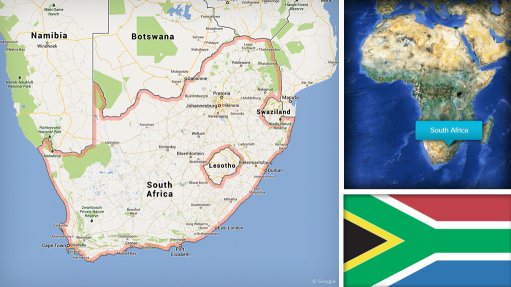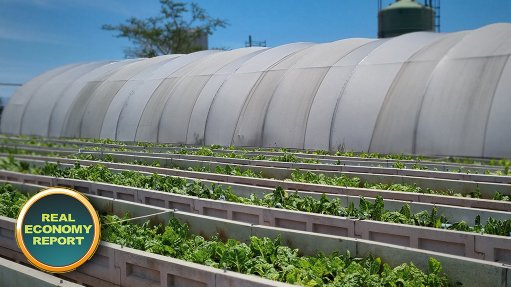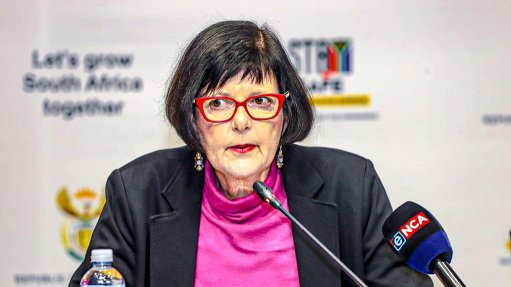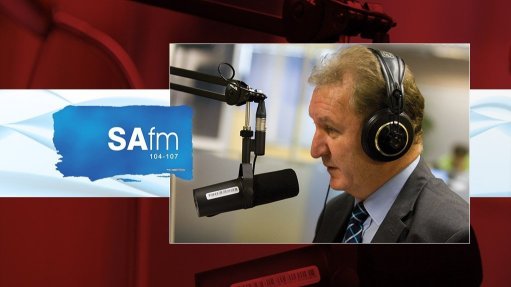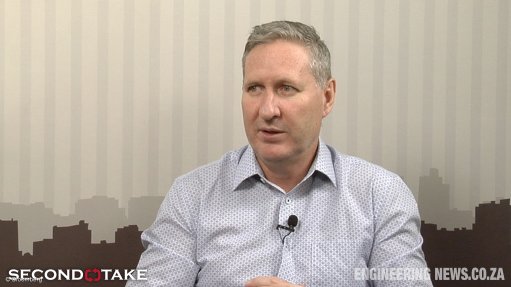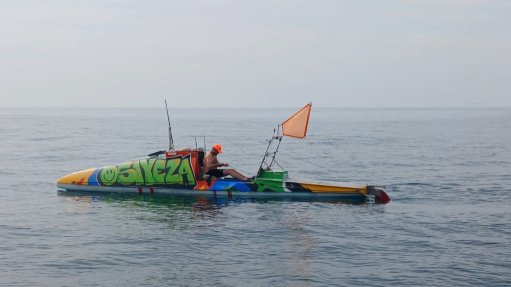Time for govt to consider new strategies to get economic growth going, says Baxter

Minerals Council CEO Roger Baxter discusses the mining industry's contribution to the economy and what measures the council hopes will be announced in the upcoming National Budget to boost South Africa's economic growth. Video: Kutlwano Matlala; Editing: Nicholas Boyd.
In what has been the longest economic downturn for the country since 1945, it has become necessary for government to consider alternative strategies and change various policies to allow business to grow the economy, Minerals Council South Africa CEO Roger Baxter said during a media briefing on Friday.
Ahead of the National Budget speech to be delivered by Finance Minister Tito Mboweni next week, the council gave its insight into what it feels the South African economy – and mining industry – needs.
Baxter noted that the 2020 budget would set the tone for whether the fiscal crisis of South Africa will be resolved any time soon or not.
South Africa’s debt ballooned from 26% of gross domestic product (GDP) in 2008 to 56% of GDP in 2019. It also deteriorated from an annual budget surplus to a deficit of 6% of GDP.
Among the measures the Minerals Council believes need to be included in the budget speech is urgent implementation of the National Treasury’s proposed economic growth strategy to improve the country’s competitiveness and resolving key constraints to infrastructure delivery.
Baxter said the private sector’s participation in key network industries must be considered, beyond seeing it as a source of taxes or tariffs, if the country is to unlock any real growth.
The Minerals Council stated that it hoped to see allocation of some resources towards the promotion of energy efficiency and demand management in the country. This could include incentives for the installation of energy efficient equipment and possible support for investment in renewable energy generation.
Further, Baxter said government would have to curb its spending through curtailing its wage bill and eradicating wasteful expenditure and fraud – including to stop bailing out State-owned enterprises.
“Government has to cut its coat according to its cloth, instead of considering more tax rate hikes.”
Speaking of tax, the council suggested that government make South African tax more competitive.
In 2019, South Africa’s headline corporate tax rate was 28% and its effective tax rate in 2017 according to the Organisation for Economic Cooperation and Development (OECD) was 27.1%.
Since 2000, the average OECD corporate tax rate had fallen from 28.6% to 21.4%.
In 2017, the average effective corporate tax rate in the OECD was 22.6%. South Africa’s effective corporate tax rate is 4.5 percentage points higher than the OECD and shows how the country’s tax competitiveness has declined.
The council further suggested that more had to be done to tackle crime, not only at mines, but also in industries that affect the mining sector.
For example, cable theft on Transet’s rail lines has caused many consignment delays in recent weeks.
Baxter said a Mining Police Task Force could be established to handle the crisis.
THE CASE FOR MINING
Mining remains a crucial sector to the economy, contributing 8% to GDP and closer to 16% when considering the multiplier effects. The sector is also responsible for more than 20% of the country’s exports and, if semi-fabricated mineral products are included, this rises to almost 40% of exports.
The industry also accounts for 17% of private fixed investment and employs around 1.3-million people in the country.
But, this is a far cry from the sector’s 15.7% GDP contribution in 1994.
Baxter believes the decline in mining output over the years has been partly owing to Eskom starting to “pull the plug” in 2007 and a lack of greenfield exploration.
Baxter explained that it was in 2007 that Eskom starting holding the country to lower percentages of electricity supply availability, which prematurely downscaled the mining sector.
In the case of greenfield exploration, it had been lacking and struggling owing to, besides others, wary investors, in light of policy uncertainty; logistics bottlenecks; costly and unreliable electricity supply; and growing criminal activity – in the form of illegal mining, community unrest and armed attacks on mines.
South Africa only accounted for 1% of exploration expenditure globally in 2018, while Australia and Canada each accounted for 14% and the rest of Africa for 13%. Of the 1% South African share, only 10% was greenfield exploration.
Baxter highlighted that there were more than 1 000 junior explorer companies listed on Canada’s TSX, while there were fewer than ten of these companies listed on the JSE, which goes to show the sentiment around exploration in South Africa.
“The long-term flourishing of mining in South Africa depends on the problems being solved around licences not being granted and funding mechanisms not leading to results,” Baxter added.
He said modifications to certain sections of the Income Tax Act and the introduction of a “flow through share scheme” could encourage venture capital investment in greenfield exploration.
The council had completed a baseline study of the role of junior miners and the constraints they are facing, which would be presented to the National Treasury – to better incentivise the sector – in due course.
Baxter added that while there were many regulatory issues that needed to be fixed to ensure quick licensing for high-level reconnaissance permits and prospecting rights, it was also crucial for government to help create “pre-competitive” information for exploration companies and also create better incentives to create local venture capital funding.
He explained that “pre-competitive” information was the provision of high-resolution geophysical data online on an open and free basis, along with a mining cadastral system that enables all prospective explorers to ascertain potential deposits and then apply online to explore these deposits.
Comments
Announcements
What's On
Subscribe to improve your user experience...
Option 1 (equivalent of R125 a month):
Receive a weekly copy of Creamer Media's Engineering News & Mining Weekly magazine
(print copy for those in South Africa and e-magazine for those outside of South Africa)
Receive daily email newsletters
Access to full search results
Access archive of magazine back copies
Access to Projects in Progress
Access to ONE Research Report of your choice in PDF format
Option 2 (equivalent of R375 a month):
All benefits from Option 1
PLUS
Access to Creamer Media's Research Channel Africa for ALL Research Reports, in PDF format, on various industrial and mining sectors
including Electricity; Water; Energy Transition; Hydrogen; Roads, Rail and Ports; Coal; Gold; Platinum; Battery Metals; etc.
Already a subscriber?
Forgotten your password?
Receive weekly copy of Creamer Media's Engineering News & Mining Weekly magazine (print copy for those in South Africa and e-magazine for those outside of South Africa)
➕
Recieve daily email newsletters
➕
Access to full search results
➕
Access archive of magazine back copies
➕
Access to Projects in Progress
➕
Access to ONE Research Report of your choice in PDF format
RESEARCH CHANNEL AFRICA
R4500 (equivalent of R375 a month)
SUBSCRIBEAll benefits from Option 1
➕
Access to Creamer Media's Research Channel Africa for ALL Research Reports on various industrial and mining sectors, in PDF format, including on:
Electricity
➕
Water
➕
Energy Transition
➕
Hydrogen
➕
Roads, Rail and Ports
➕
Coal
➕
Gold
➕
Platinum
➕
Battery Metals
➕
etc.
Receive all benefits from Option 1 or Option 2 delivered to numerous people at your company
➕
Multiple User names and Passwords for simultaneous log-ins
➕
Intranet integration access to all in your organisation








